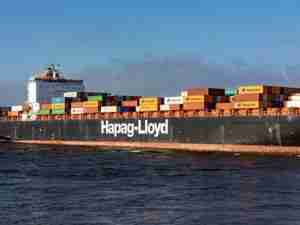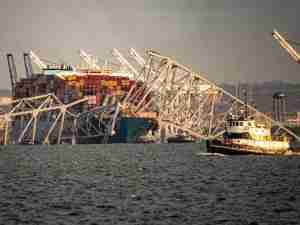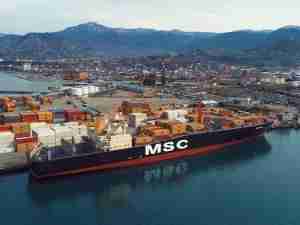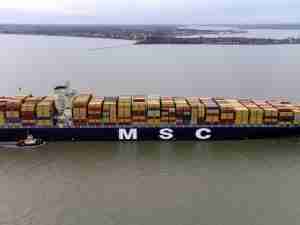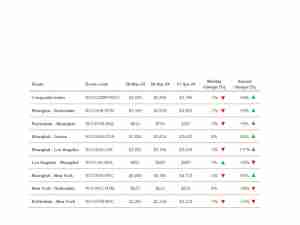Effective April 1, WTSA is recommending a schedule of increases that will raise dry commodity rate levels by US$50 per 40-foot container (FEU) from Pacific Southwest ports (Los Angeles, Long Beach and Oakland) to Asia, and by $100 per FEU for all other cargo, moving via all-water or intermodal service from Pacific Northwest ports, from inland U.S. points and from the U.S. East and Gulf Coasts.
WTSA lines also reaffirmed their commitment to fully apply higher bunker fuel surcharges scheduled to take effect on April 1 on top of the adjusted base rates. Agreement executive director Brian M. Conrad said it is critical for carriers in the current market environment that the westbound transpacific trade makes a greater contribution to network revenues.
'This is a moment of significant opportunity for U.S. exporters to Asia, and carriers want to ensure that service levels ' in terms of schedule reliability, space and equipment availability, accurate and timely documentation, or other requirements ' are in place to maximize that opportunity,' Conrad stressed. He noted the unique challenges of the westbound trade, such as the 2:1 cargo imbalance favoring eastbound imports from Asia, operational and cost challenges getting empty containers to remote inland load points, and capacity constraints due to the mix of heavier westbound cargoes and empty equipment on a typical sailing. 'All of these factors add to cost and load planning complexity and must be adequately addressed in the rate structure,' he pointed out.
Regarding fuel surcharges, Conrad said WTSA lines are keenly aware of the low margins facing many westbound shippers of raw commodities and semi-finished goods. But he cited independent industry estimates of carrier' collective global losses of more than $5 billion as demand slowed, rates fell and operating costs ' especially fuel costs ' increased dramatically.
'Since the beginning of 2012 lines have seen their fuel costs rise steadily, and recently break through the previous record levels set in mid-2008,' he said. 'With bunker fuel prices now exceeding $750 per metric ton and bunker accounting for 60% of operating expense on a typical sailing, absorbing any portion of that cost on a sustained basis is not an option.'
WTSA is a voluntary discussion and research forum of 10 major ocean and intermodal container shipping lines serving the trade from ports and inland points in the U.S. to destinations throughout Asia. WTSA members include: APL, Ltd., COSCO Container Lines, Ltd., Evergreen Line, Hapag Lloyd AG, Hanjin Shipping Co., Ltd., Hyundai Merchant Marine Co., Ltd., Kawasaki Kisen Kaisha, Ltd. (K Line), Nippon Yusen Kaisha (N.Y.K. Line), Orient Overseas Container Line, Ltd.., Yang Ming Marine Transport Corp.
